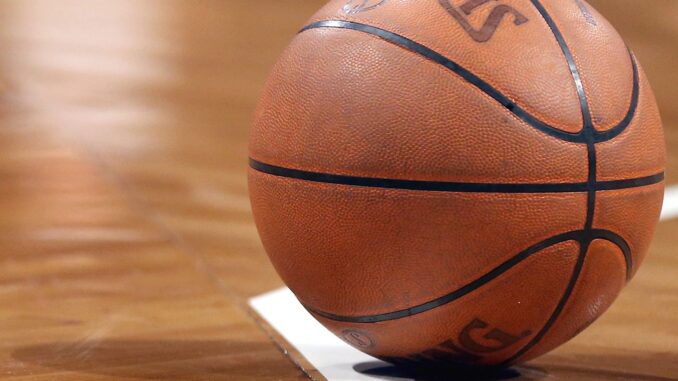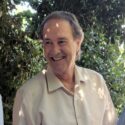
The passing of long-time Oregon high school coach John Eggink has produced some well-deserved accolades from those who knew him well.
But, there is another story that hasn’t been told. It is the story of my own personal experience with Coach E. It is a story I have mentioned to a few friends over the years, but I never mentioned the name of the person who helped me so much for no particular reason.
I doubt that Coach E. ever knew his impact on me because I never told him. I wish I had.
Although he was known best for coaching football, what is less known is that he spent one season coaching varsity basketball. I spent one season playing varsity basketball. The two came together at the same place and time.
I had not tried out for basketball in my first two years of high school. Although I was tall, I figured I was too thin, too slow, too lacking in skill, and certainly in confidence. But I loved the game, and I thought if I practiced on my own for an uncounted of hours, I might change those inadequacies.
I worked and worked and often walked a mile each way from my home to a covered court. I practiced when summer days were too hot, autumn days too wet, and winter days too frozen.
What I didn’t know at the time is that practicing without proper fundamentals is counterproductive because it cements bad techniques into obstinate habits. Nonetheless, I had a passion, and people with passion just won’t quit.
When basketball tryouts were announced in my junior year, I was eager. Even if I couldn’t make varsity, I thought I might have a shot at junior varsity.
Instead, I was cut.
From both.
I was crushed, but I had to be honest; the others were just plain better.
As I said earlier, people with passion don’t quit. In fact, it sometimes leads them forward with even greater determination. Sometimes it leads them to ideas that are too crazy to work.
Until they do.
I approached Coach E. and told him that I didn’t want to leave even though I was cut. I wanted to stay and practice. I didn’t care if I was a practice dummy forever; I just wanted to scrimmage and learn and get better.
Eggink was a kind man. He didn’t laugh.
He looked at me for a few seconds. His head began to go side-to-side slowly, and I figured his answer was “no.” Instead, he said, “I’ve never heard anyone say that before. Are you sure you want to do this?” I told him I was completely sure, and he said, “But you have to understand that the roster is set, so if I let you stay, it’s only because you want to and not because you will ever be on the team.”
I couldn’t have been more excited. Imagine the absurdity of being excited about becoming a practice dummy. Such is the dementia of the overly-passionate.
At the next practice, Coach E. explained my situation to the team. There was some hushed scoffing, but I expected that. I mean, we’re talking high school here. And, I didn’t fault the scoffers. I understood. I had already been cut, so why was I still there?
A couple of them thought elbow jabs to a spindly body during practice would make me quit, but they didn’t. I kept my mouth shut, took their best shots, and after a few practices, it was their jabs that quit.
I absorbed everything our coaches taught, and I worked hard. I dedicated myself to defensive instruction since I could master those sooner than the deficiencies in my hand skills and because it seemed to me that not many of the others cared much for defense.
After our fourth practice, coach Eggink pulled me aside. I didn’t know it then, but that was the day the legend of John Eggink began for me.
He said he was impressed with how hard I worked, and he encouraged me to keep going. “But,” he said, “you are very underweight, and I’m concerned about your health.” The discussion that followed caused me to reveal dysfunction in our family history and a haphazard diet, nutritionally deficient, and often baptized in Coca-Cola.
His face furrowed, and he was pensive. He asked if it would help if he talked to my parents, and I pleaded with him not to do so because I feared any ruckus would jeopardize even my lowly position as a practice-only player.
“Okay. I won’t interfere,” he lamented. He was pensive again before saying, “But how about this– your shooting needs help, and if you’re interested, I can give you some assistance. If you learn proper technique, you could more than double your accuracy. But, I’ll only do this if you want to, and you promise to work on those things at home on your own time.”
I jumped at the opportunity, practiced shooting fundamentals like crazy, and almost immediately, my shooting accuracy surged.
Only years later, I realized he had asked first about my health. His first concern was for me as a person, not as a player. I don’t remember a single time that he ever counseled me that he didn’t end with a morsel of truth about how to live life well and the encouragement to dedicate myself to those good things.
Although my dream of playing for my high school ended in a cut, there was something that I didn’t know.
It wasn’t over.
With the Christmas break approaching, coach Eggink shocked us.
After starting the season 0-11 and losing to schools smaller than ours, he announced that he had dismissed three starters from varsity. He then announced that the three positions would be filled by a senior point guard returning from academic ineligibility. Another would go to the starting center from the JV team, a sophomore who was also an all-Oregon center on the football team. The third would go to — yup –- the skinny kid with the bruised ribs, although I would split time between varsity and JV’s.
I couldn’t believe it. In a matter of weeks, I had gone from being cut to making varsity—sort of.
I know that some questioned if I was deserving because I was one of them. But, who in my situation would have said “no”? Besides, if nothing else, I made the team look taller, at least during warm-ups.
During the Christmas break, Coach E. slowed our attack and installed a clever offensive scheme that Utah State was using.
It clicked with us immediately, and after the Christmas break, we opened the second half of the league season with a stunning upset over one of the league’s better teams. We repeatedly won until we finished the second half of the season 7-2. Had we not lost by two points to one of the favorites, we could have played for the conference championship.
We were suddenly the “Cinderellas” of Oregon basketball, a term not preferred by high school boys but one more appealing than that of laughing stock.
John Eggink was not an ordinary coach. Neither was he an ordinary human being. He didn’t have to take time to help a struggling kid, but he did because that was the fabric of his nature. Unlike others who talked about coaching for the sake of the kids but didn’t, he actually did coach for the kids’ sake but just didn’t talk about it.
His example of decency and caring followed me to adulthood and became the primary reason I coached youth basketball. There wasn’t a single day that I spent with kids that I didn’t think of John Eggink and compared myself to his example. Did I care for each kid as a person? Was I vigilant? Did I value them and encourage them regardless of their basketball ability?
As youth coaches, we have an incredible opportunity to invest in kids, especially those who seem rudderless in the turbulent waters to adulthood. The mechanism may be as simple as shooting lessons, but the manifestation is as big as the compassion we bring. You may never see the dividends because those often don’t appear until later. I tend to think of it this way:
The deeper the well, the longer it takes for coins to echo.
Coach John Eggink’s influence has been apparent in nearly every meeting I’ve had with coaches, encouraging them to coach whole people, not just basketball players. Of course, some were influenced. Sadly, most were not. Still, I can’t quit. I know that influencing one coach will influence dozens of kids.
Along the way, I devised a motto that I have passed on to many of the coaches I’ve worked with. Although I devised it, Coach E. is the one who instilled it.
That motto is:
“You can build a winning team and be remembered for a season,
or you can build a winning person and be remembered for a lifetime.”
Coach John Eggink, I wish I would have told you how much you helped me. At least I can tell it now. Thank you for building into me the elements of decency, honor, and care.
I have never forgotten, and I never will.

